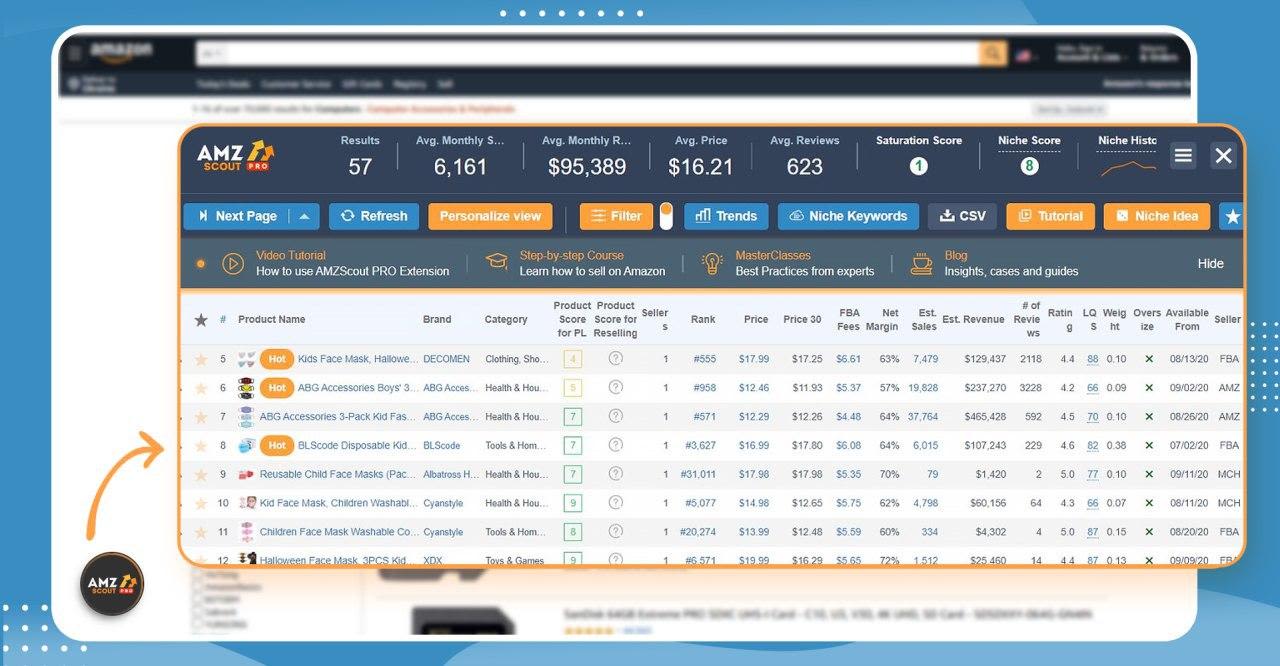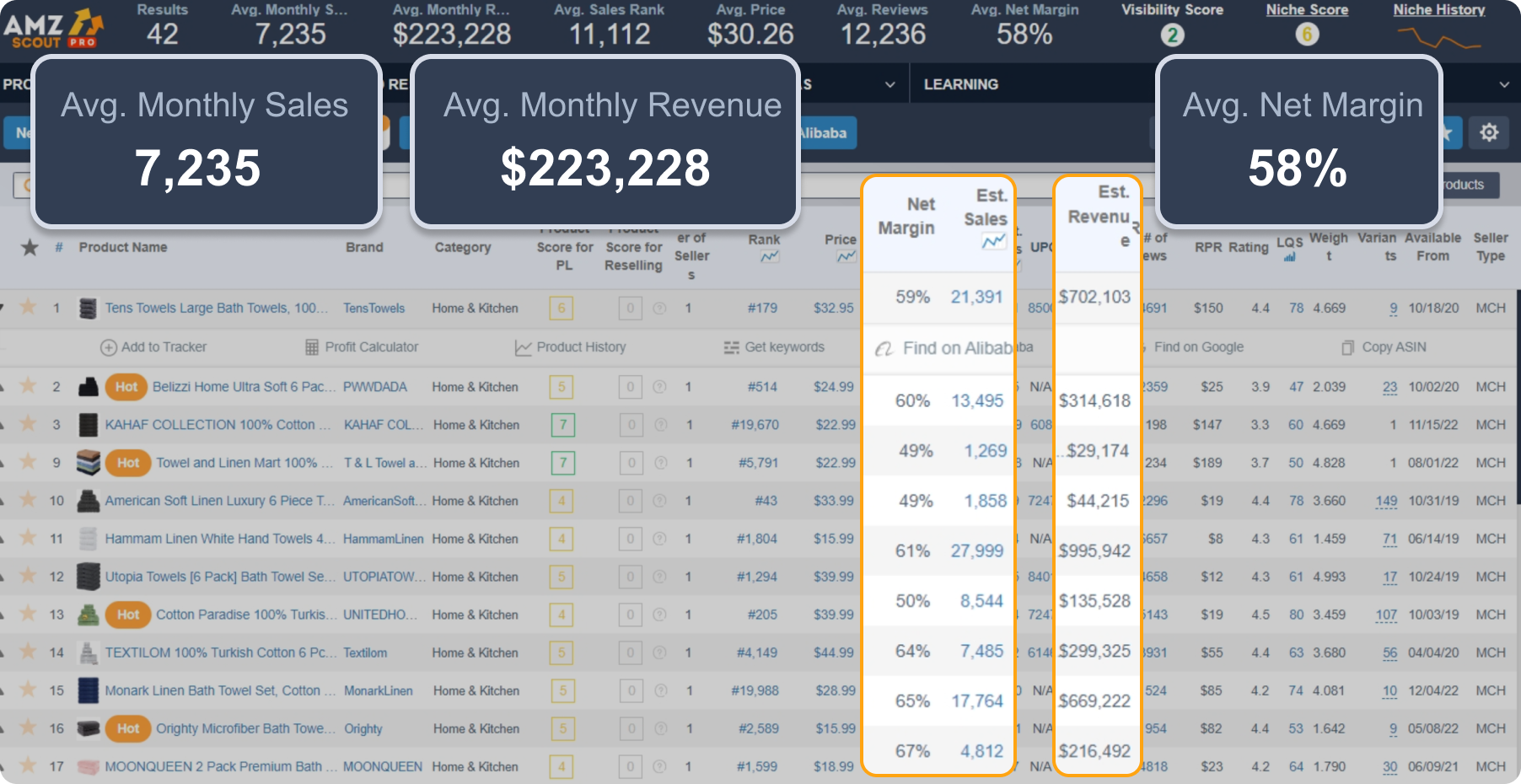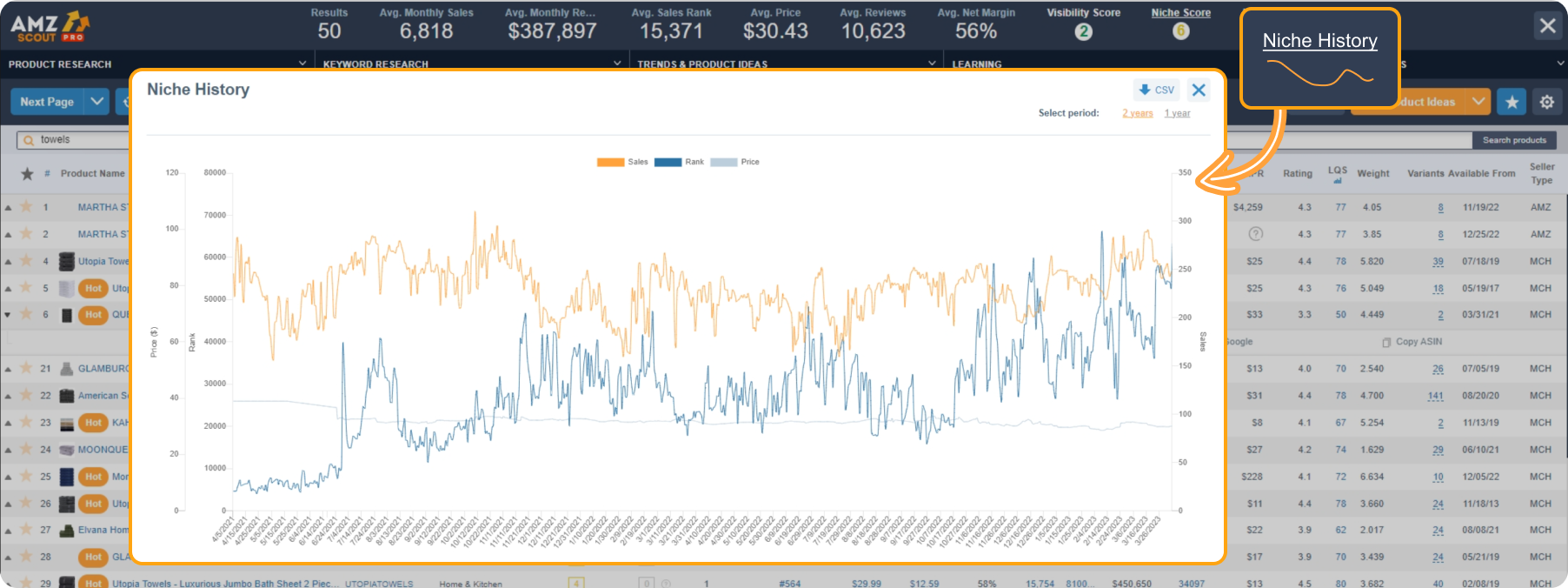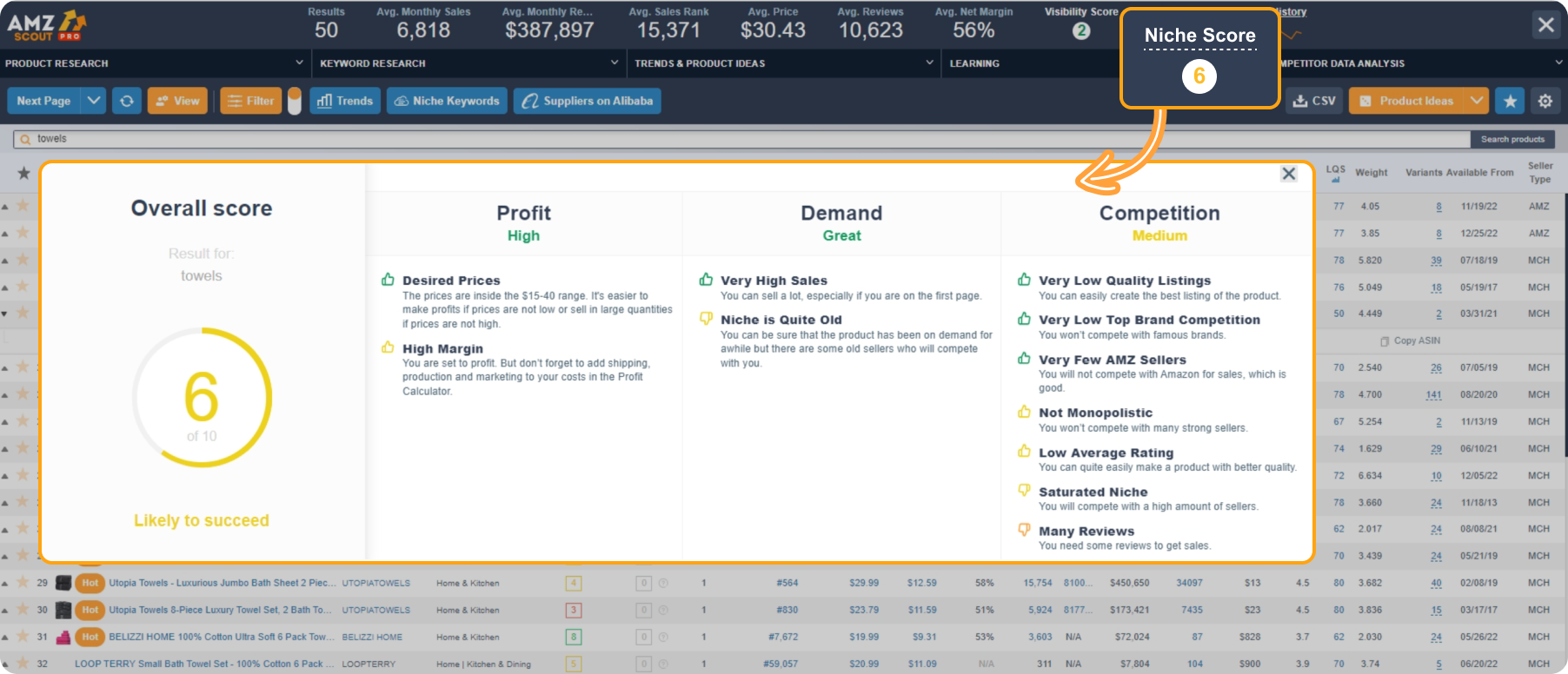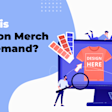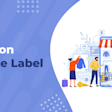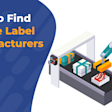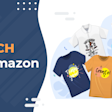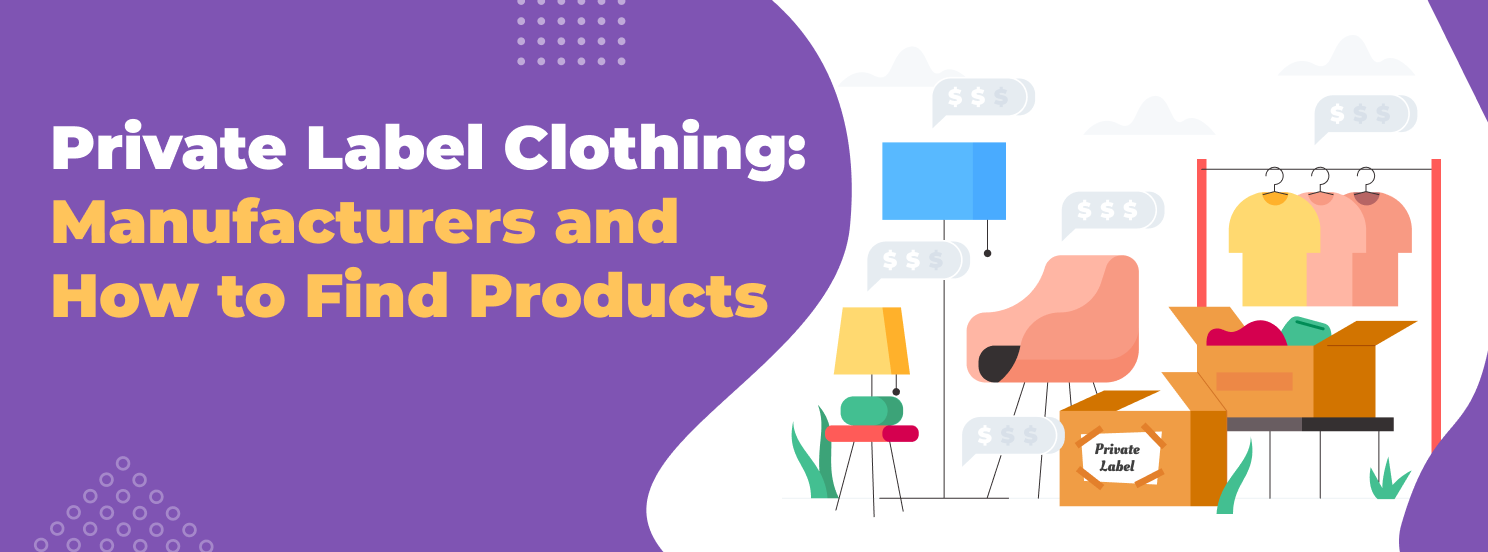
Private Label Clothing: Manufacturers and How to Find Products
You don’t need to be a fashion designer to sell clothes under your own brand. Instead, you can partner with a supplier who produces customizable clothing, personalize it according to your preferences, and sell it as your own brand. This business model is called “Private Label” clothing, and it offers a method for businesses to offer something different from what other stores are selling. In this article, we will explore the ins and outs of Private Label clothing, focusing on how to find and sell these types of products.
Table of contents
Finding Private Label Clothing Ideas
Picking the right products to sell helps to set your brand apart from others and attract the right customers. If you choose products that your target audience likes and needs, your brand will have a better chance of success. Effective product selection also makes the process of marketing easier and helps build customer loyalty.
In short, choosing the right products is key to making your clothing business profitable and well-known. You can find ideas on your own, but this takes a lot of time and effort. You can also explore potentially profitable product ideas with the help of special tools that will save you time and money, like those from AMZScout.
1. Find product ideas using the AMZScout Product Database
The process of searching for product ideas can be easier and faster with the AMZScout Product Database. This tool offers immediate access to an extensive Amazon database that contains over 600 million items. You can view and select the most appropriate product options by simply applying a few filters. This allows you to save tons of time and effort. Here’s how to use it:
1. Open the AMZScout Product Database.
2. Select the 'Clothing' category from the list of categories.
3. Use filters to refine your search. For example, you can set your desired minimum and maximum price, number of sales, the level of competition you're comfortable with by choosing the seller type*, number of reviews, and number of sellers.
*Seller types include Amazon itself, Fulfillment by Amazon (FBA), and Fulfillment by Merchant (FBM). Competing with Amazon as a vendor is challenging, which is why it's advisable to avoid niches where Amazon is a seller.
4. Click ”Search”. A list of clothing products based on your criteria will appear.
5. Browse through the list to find products that match your interest. Look for items that have a good balance of demand and competition, as these could present potential opportunities for your Private Label business.
2. Check ideas using the AMZScout PRO Extension
After you've identified some potential products in the Product Database, you can use the AMZScout PRO Extension to help you explore these ideas further, conduct market research, understand the competitive landscapes, and discover niches with high profit potential. Follow these steps to use this tool and find this information:
1. Install the AMZScout PRO Extension.
2. Start your free trial. This will allow you to understand the instrument's functionality by testing it out with 15 queries.
3. Go to Amazon.com. Search for any clothing items you found interesting. For example, enter a keyword phrase such as 'Women's cotton T-shirts' into the search bar, or open a page featuring a specific product.
4. Activate the AMZScout PRO Extension. Click on the extension’s icon in the bottom left corner of the screen.
5. View detailed insights on the products in your desired niche. The extension will provide a comprehensive table with estimated sales, revenue, and the number of reviews. Youcan also utilize the profitability calculator by entering approximate costs to determine the estimated profits for any product.
6. Analyze niche data in greater detail.
Check niche data at a glance. Look at the top of the table, where you can find the average number of sales for each month, average sales rank, average price, and number of reviews.
View Sales and Price History data within the niche. Go to Niche History to see these metrics.
Check the overall niche assessment. Click on Niche Score to observe the levels of demand, competition, and profitability.
7. Use this information to help you find a niche for your new product. Look for niches with high demand, such as those where products within the niche have more than 300 sales per month. But they should also not be overly saturated with competition.
8. Pay attention to any trends or seasonality within the niche. Click on the Niche History to evaluate the number of sales. This will help you understand which products are seasonal.
Remember, successful private labeling involves not just finding the right product, but also choosing a reputable manufacturer. In the next section, we’ll share the most trusted private label clothing suppliers.
Top 10 Private Label Clothing Manufacturers
Here are ten examples of reputable manufacturers to consider, depending on your budget, brand concept, and location:
1. Appareify
Based in: China
Type of clothes produced: Jeans, hoodies, kids clothing, activewear
Known for their diverse range of fashion apparel, Appareify offers custom solutions for sellers. They excel in creating high-quality, sustainable clothing, making their products a great choice for eco-friendly brands.
2. Tack Apparel
Based in: USA
Type of clothes produced: T-shirts, hoodies, leather, swimsuits, workout and fitness clothing
Specializing in workout and fitness clothing, Tack Apparel provides both quality and customization options. Tack Apparel stays up-to-date with the latest trends in fitness and everyday fashion, ensuring that a seller can offer their customers stylish, contemporary designs for yoga, pilates, and other kinds of sport.
3. Royal Apparel
Based in: USA
Type of clothes produced: Streetwear, casual wear, loungewear
This USA-based manufacturer stands out for its ethical and sustainable practices. They offer a wide range of clothing including streetwear, casual clothing, and loungewear. Furthermore, Royal Apparel's eco-friendly approach appeals to a growing segment of consumers who prioritize environmental and social responsibility. This makes their clothing lines especially attractive to sellers targeting a conscious market.
4. Hongyu Apparel
Based in: China
Type of clothes produced: Kids clothes, women's clothes, streetwear, hoodies, hats, pijamas, swimwear, T-shirts
A well-known name in the industry, Hongyu offers a variety of clothing options, including apparel for both children and women. They are noted for their quality and design flexibility. Hongyu's ability to adapt to diverse design trends makes this company an excellent choice for sellers who want to offer items in the baby and women's fashion markets.
5. Arvind Limited
Based in: India
Type of clothes produced: Luxury clothes, jeans, knitted clothes
Based in India, Arvind Limited is one of the largest global manufacturers. They provide high-quality fabrics and are a good fit for luxury private label brands.
6. Bomme Studio
Based in: USA
Type of clothes produced: Performance wear, casual wear, swimwear, kids’ clothing
Located in the USA, Bomme Studio offers full-service development, sourcing, and production for various types of private-label clothing, including performance wear, swimwear, and kids’ clothing. They have manufacturing sites in California and Mexico, and a sourcing office in South Korea. Bomme Studio also offers digital marketing agency services.
7. The Evans Group
Based in: USA
Type of clothes produced: High-end fashion clothes
The Evans Group is a full-service fashion development and production house. They offer a range of services including sourcing, grading, marking, cutting, hand sewing, trimming, and packing. The Evans Group caters to both emerging designers and high-end clothing companies.
8. Indie Source
Based in: USA
Type of clothes produced: Knits and woven clothes
Based in the United States, Indie Source is a full-package manufacturer of private-label knits and woven clothes. They assist in sourcing fabric, making patterns, building samples, and also provide marketing and selling assistance.
9. Lefty Production Co
Based in: USA
Type of clothes produced: Men’s, women’s, and children’s everyday wear, bikinis, athletic clothing, lingerie, and bridal dresses
Located in Los Angeles, California, Lefty Production Co offers a range of services for manufacturing men’s, women’s, and children’s everyday wear, as well as specialized items like bikinis, athletic clothing, lingerie, and bridal garments.
10. Suteks
Based in: Turkey
Type of clothes produced: Eco-friendly casual clothes and high-end fashion clothes
This manufacturer, based in Turkey, is a reputable option for private label clothing. Suteks excels in creating high-quality items for various fashion brands. They are recognized for their textile expertise and dedication to eco-friendly practices. Suteks produces a wide array of clothing styles, ranging from casual attire to more sophisticated pieces.
All of the above-mentioned manufacturers, from Appareify's eco-friendly clothes to Lefty Production Co’s work with all types of brands, offer the quality and customization needed for success in fashion. They are skilled and reliable choices for creating your clothing line, whether it's organic, high-end, or fitness, making sure it's both high-quality and appealing to your customers.
Where to Sell Private Label Clothing
When it comes to selling private label clothing, your choice of platform can significantly impact the success of your business. With the rise of eCommerce, there are numerous options available, each with its unique advantages. Here’s a look at some of the most effective platforms where sellers can showcase and sell their private label clothing:
1. Amazon
Amazon is a major online retailer, and one of the best options to start a private label clothing business. It possesses a large customer base and offers numerous services like storage, packing, and shipping through Fulfillment by Amazon (FBA).
2. eBay
eBay is a popular platform with a diverse marketplace, good for both auction-style and regular sales. It's great for reaching customers worldwide and is especially useful when it comes to selling vintage or luxury clothes. These types of fashion items have a dedicated buyer base on eBay.
3. Etsy
Etsy is great for sellers of boutique and unique private label clothing. Its customers prefer custom-made dresses, knitwear, and artisanal clothes. In addition, traditional clothing from around the world, including kimonos, saris, and African print attire, can find its customers on Etsy.
However, this platform’s audience might be smaller than those on other bigger marketplaces. For example, there were 23.76 million Etsy users in Canada and 19.92 million in Germany in 2023. In comparison, there were over 160 million Amazon users in Canada and 46 million Amazon users in Germany in 2023.
4. Shopify
Although Shopify is primarily known for its dropshipping capabilities, this platform also allows you to build your own online store, giving you complete control over your brand's appearance. It offers lots of customization options, works with many apps, and provides tools for marketing and search engine optimization. However, you'll need to put in more effort to attract customers and make sales here, since you're starting a brand from the beginning. The most challenging aspect is that your website won't attract as much traffic as Amazon, for example. You’ll also need development and management skills to build and maintain a website on your own.
5. Instagram and Facebook Shops
Instagram and Facebook Shops are great for selling directly to an audience that's already engaged on social media. Many eCommerce platforms offer direct integration with social media: products listed on an eCommerce website can automatically appear on a social media profile.
Additionally, social platforms enable businesses to create shoppable posts and stories. Users can tap on these to see product details, prices, and a link to buy the product directly from the eCommerce site.
6. Wholesale Platforms
Wholesale platforms (like Alibaba and Global Sources) link sellers with retailers and bulk buyers. This is quite an attractive business option for many sellers due to high potential profits.
However, wholesale has a lot of drawbacks as well. For example, vendors need to plan how to pack and send large orders in an efficient and affordable way. Selling products in bulk also requires a significant upfront investment, which can present a barrier for small or new businesses.
7. Local Marketplaces and Shops
Brick-and-mortar local marketplaces and shops give you a physical presence, and they also allow you to interact directly with customers. Local shops and marketplaces are great for building a local brand and for sellers who prefer face-to-face sales, but they also have a smaller reach than online platforms, in addition to requiring more hands-on management and larger expenses.
8. Online Retailers
Retailers have expertise in merchandising, presentation, and sales strategies. They can enhance the appeal of your clothing line to consumers. Working with retailers can help with logistics and operations, like storing, shipping products, and sometimes even dealing with customer service. Finally, retailers provide direct access to customers, allowing for immediate insights into consumer preferences and trends.
9. Your Own Website
Having your own website establishes a professional online presence and gives you full control over your brand. It also allows for flexibility in terms of design, marketing, and managing customer relationships. However, maintaining a website requires strong technical skills, as well as investment in website development, SEO, and attracting visitors.
Each of the platforms above has its own unique set of pros and cons. The best choice depends on your business model, target audience, and resources. A multi-channel approach can also be effective. Remember, success in selling private label clothing is not just about where you sell, but also how effectively you market your brand and engage with your audience.
Conclusion
Starting a private label clothing line can be a rewarding business. Sellers can create a successful brand, but they will need to choose the right product, designs with good potential, and a reputable manufacturer. Whether you offer fitness wear, luxury apparel, or eco-friendly clothing, the key is in understanding your niche and producing products that resonate with your target audience.

